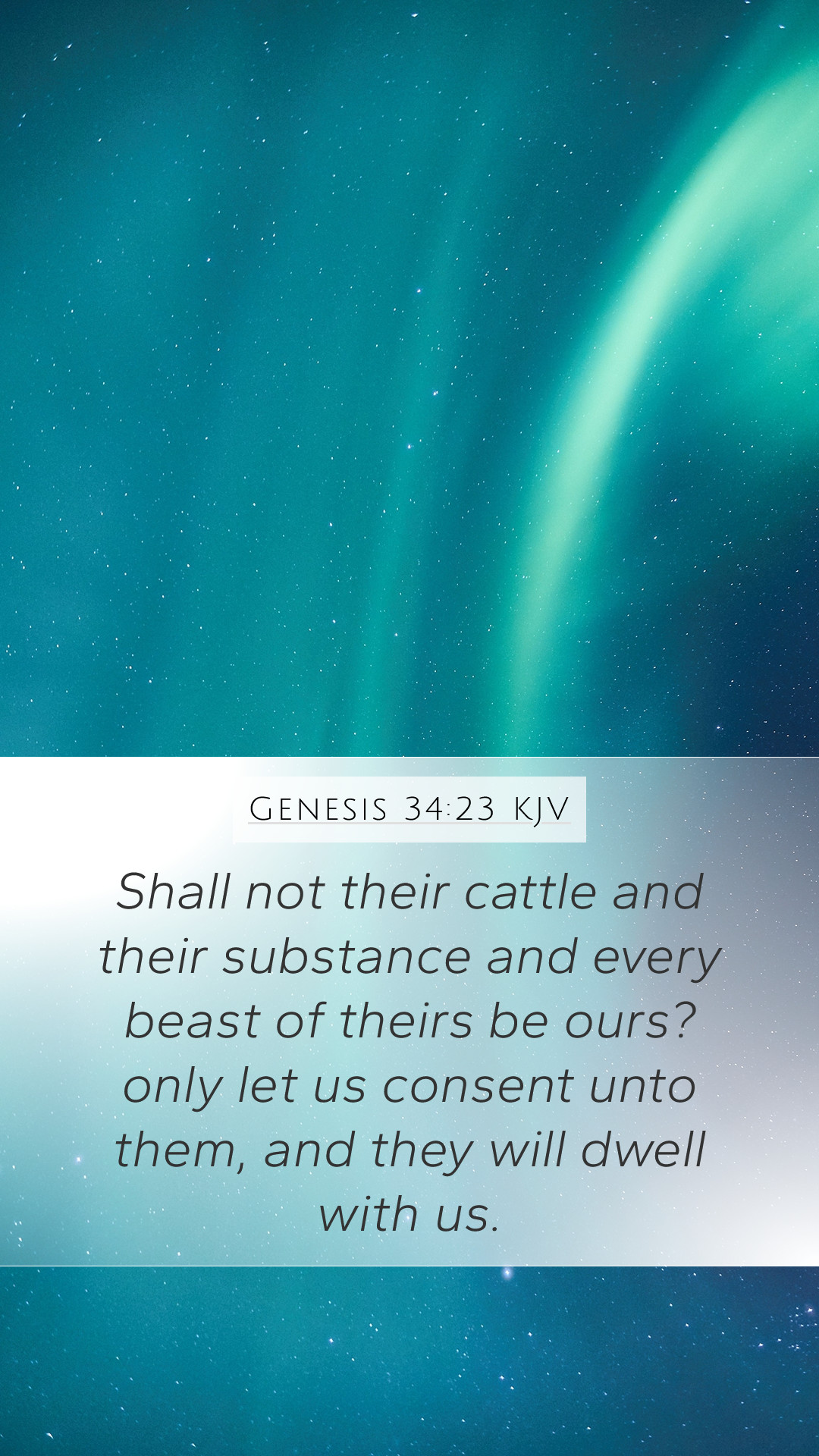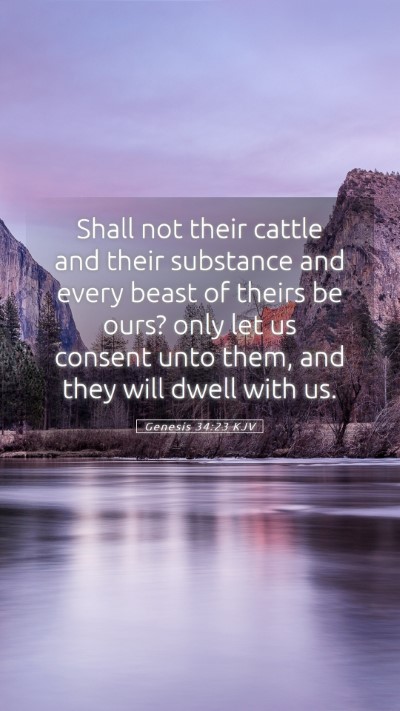Understanding Genesis 34:23
Genesis 34:23 states: "But if we will not consent to them, we will take our daughter, and be gone." This verse occurs in the context of the negotiation between the sons of Jacob and the people of Shechem after the violation of their sister Dinah. The underlying themes of this passage include issues of honor, cultural customs, and the complexity of familial relationships.
Contextual Background
The narrative surrounding Genesis 34 is crucial for understanding the verse in question. Dinah, the daughter of Jacob, is subjected to an act of violence by Shechem, prompting her brothers to respond with vengeance. The marriage proposal from Shechem's father, Hamor, appears as an attempt to reconcile, yet is steeped in deeper implications of power dynamics and cultural integration.
Commentary Insights
-
Matthew Henry:
Henry emphasizes the gravity of Dinah's situation, highlighting the moral decay in Shechem's request. He indicates that while the family of Jacob seeks to safeguard their honor, they are also grappling with the larger implications of intermarriage with a people who have been disrespectful to their family.
-
Albert Barnes:
Barnes notes the brothers' indignation and their calculated response to Shechem's offer. The refusal to comply reflects not just personal aversion but a broader principle of separation from other nations, which is prominent in the Israelites' ethical and religious codes.
-
Adam Clarke:
Clarke focuses on the culture of the time regarding marriage and how it dictated social and spiritual consequences. He suggests that the refusal highlights a critical stance against integrating with a people who have shown a blatant disregard for their values and family integrity.
Thematic Analysis
Genesis 34:23 encapsulates several key themes relevant to Biblical scholarship:
- Honor and Shame: The actions of the brothers emphasize the importance of family honor in the ancient Near Eastern context.
- Cultural Boundaries: The tension between the Israelites and Shechemites is a precursor to later themes in Scripture regarding God’s covenant people remaining separate.
- Justice and Revenge: The brothers' decision illustrates a complex understanding of justice that is often at odds with contemporary moral reasoning.
Application for Bible Study
This verse invites readers to reflect on how ancient biblical narratives inform modern ethical dilemmas and familial relationships. It poses important questions regarding:
- How do we interpret cultural differences in relation to our faith?
- What role does familial honor play in our decisions?
- How can we navigate conflicts when cultural practices clash with our values?
Cross References
This verse can be related to several other passages in Scripture that discuss themes of family, honor, and cultural relations:
- Genesis 12:1-3: God calls Abram to separate from his homeland.
- Exodus 34:12-16: Instructions on not making covenants with other peoples.
- Deuteronomy 7:3-4: Command against intermarriage with foreign nations.
Conclusion
In exploring Genesis 34:23, we find profound biblical teachings on the significance of family honor, cultural identity, and the importance of ethical boundaries. Such insights serve as essential components for anyone engaged in Bible study resources, Bible study guides, or seeking meaning of Bible verses within a contemporary framework.


